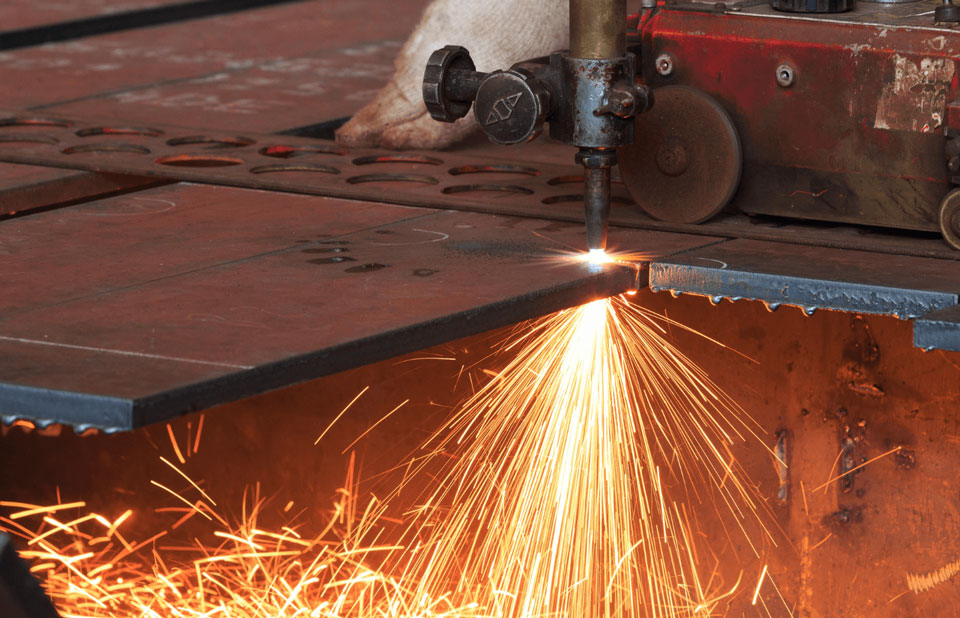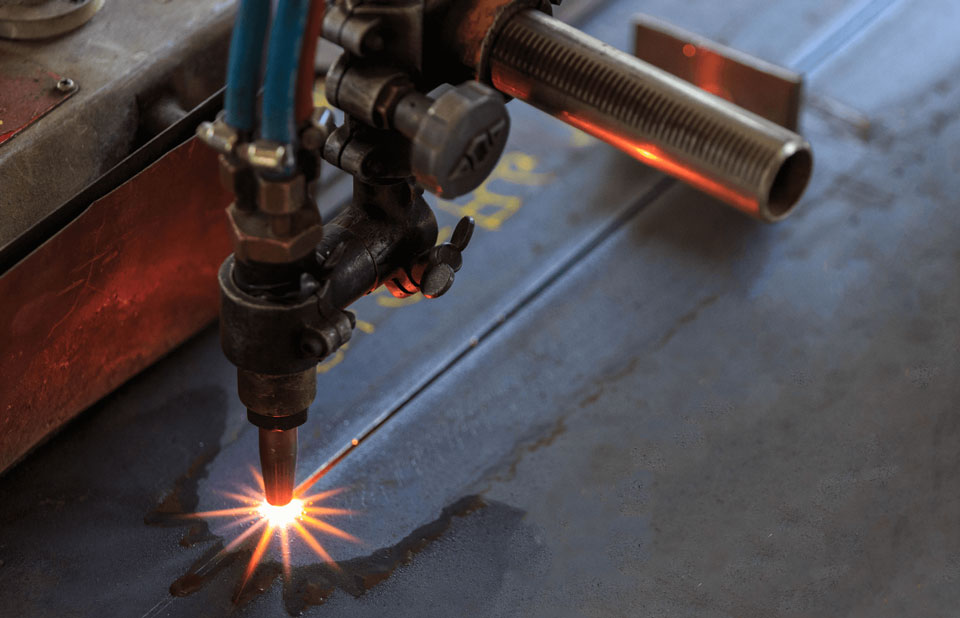Although most regular steel products aren't as likely to crack, cut edge cracking is a common phenomenon for steels of thicker gauges or grades exhibiting a substantially high carbon content, such as wear-resistant steels and high strength steels.
These steels are essential materials for many industries like construction and mining, where durability and strength is a must. As annoying as cut edge cracking can be, there are some useful ways to prevent it, and we're sharing some of the most effective tips on how to eliminate cut edge cracking!
But first, you might ask:
When thermal cutting on steels of thicker gauges, cracks can form from the cut edges. Cut edge cracking is caused by similar reasons as cold cracking from welding, including:
hydrogen content cracking
cut edge residual stresses
a high carbon equivalent
Cut edge cracking is also known as delayed cracking, as it takes from 48 hours to several weeks after the cutting for the cracks to show. It is a phenomenon closely related to hydrogen cracking in welds under thermal cutting methods.
The likelihood of cut edge cracks to occur on your steel products will increase with the hardness of the steels and the thickness of the steel plates.
Preheating before cutting is no doubt the best way to eliminate the risk of cut edge cracking. Preheating is most commonly applied prior to oxy-fuel cutting. It can be carried out by utilizing burner lances, electric heating mats, or by heating in a furnace.

The preheating temperature depends on the steel grade and plate thickness. For detailed information, we at CUMIC provide professional help for your inquiries. The required temperature should be measured on the opposite side from that at which heating takes place.
Also, don't forget to maintain a low-temperature gradient across the plate cross-section in order to avoid local overheating at the contact area of the heat source!
If preheating cannot be carried out, maintaining a low cutting speed can be the best alternative option. Although slightly less consistent than preheating when it comes to preventing cut edge cracking, low cutting speed is still one of the most useful methods.

If preheating is not employed, the maximum permissible cutting speed depends on the steel grade and the plate thickness. Therefore, we highly recommend a combination of preheating and low cutting speed for reducing further the susceptibility to cut edge cracking.
Regardless of whether or not the previous two methods are employed, a slow cooling rate can help reduce the risk of cut edge cracking. Slow cooling can be achieved if the parts are stacked together while still warm from the cutting process, and are covered with an insulating blanket. Allow the parts to cool slowly down to room temperature.
Another way to avoid cut edge cracking is to heat up the parts immediately after cutting. This will prolong the time at temperature to allow the hydrogen to escape from the steel plates. The residual stresses at the cut edge can also potentially decrease to a certain extent.
When applying the post-heating method, the soaking temperature should be the same as the preheating temperature introduced before, and the soaking time should be at least 5 minutes per mm of plate thickness.
For post-heating, multiple methods including Burner lances, electric heating mats, or heat treatment in a furnace can be used.
If you're using wear-resistant steels, high strength steels, or other thick steel materials with high carbon equivalent for your business, taking the right measures to prevent cracking can be a huge cost reduction.
CUMIC Steel Limited, led by an internationally experienced team of industry experts, is specialized in trading wear-resistant and high strength steel. With long-term cooperations with over 200 steel mills and multiple globally renowned third-party quality control organizations for over a decade, CUMIC can be your trusted supplier.
